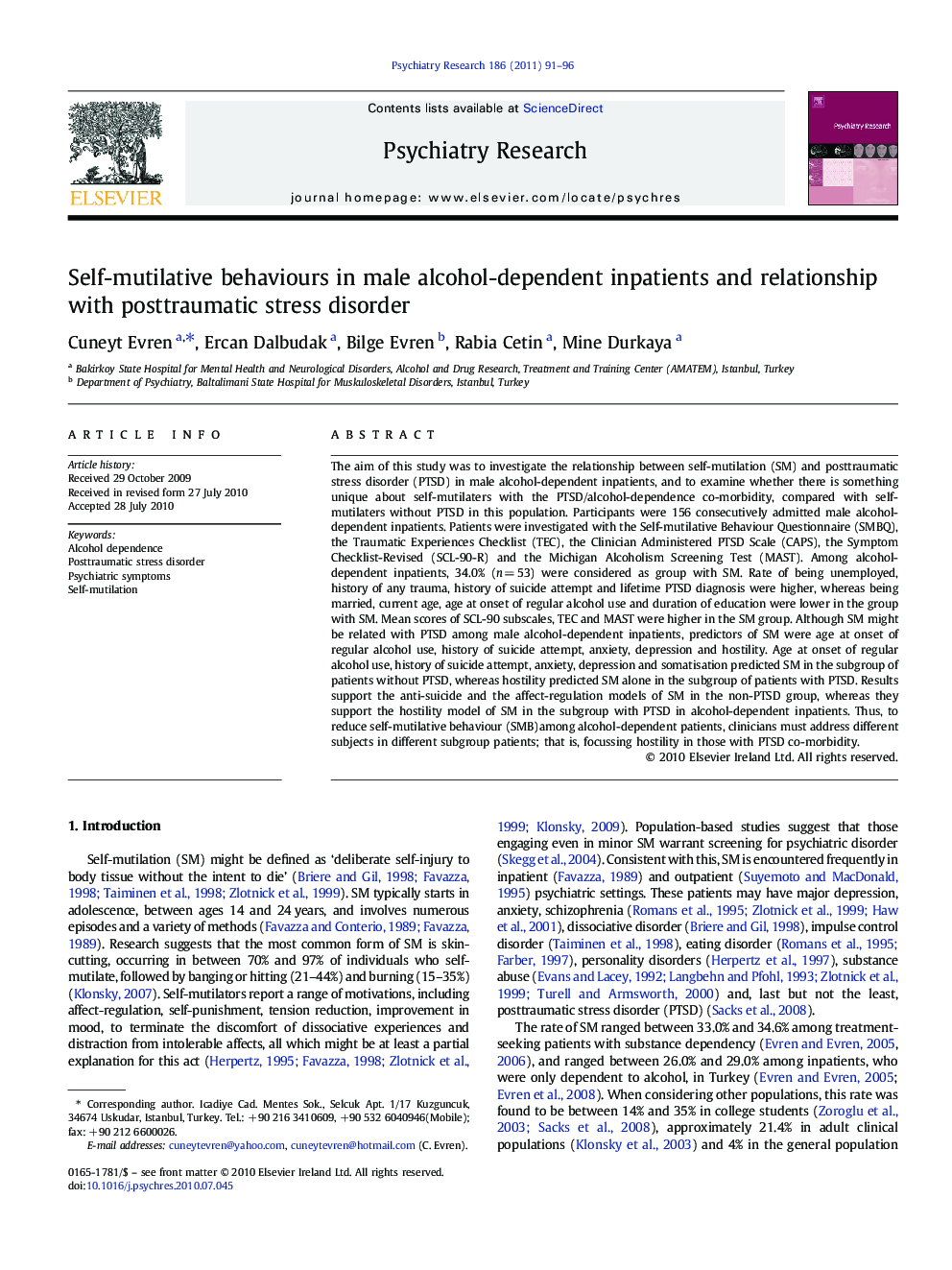| کد مقاله | کد نشریه | سال انتشار | مقاله انگلیسی | نسخه تمام متن |
|---|---|---|---|---|
| 333640 | 545956 | 2011 | 6 صفحه PDF | دانلود رایگان |

The aim of this study was to investigate the relationship between self-mutilation (SM) and posttraumatic stress disorder (PTSD) in male alcohol-dependent inpatients, and to examine whether there is something unique about self-mutilaters with the PTSD/alcohol-dependence co-morbidity, compared with self-mutilaters without PTSD in this population. Participants were 156 consecutively admitted male alcohol-dependent inpatients. Patients were investigated with the Self-mutilative Behaviour Questionnaire (SMBQ), the Traumatic Experiences Checklist (TEC), the Clinician Administered PTSD Scale (CAPS), the Symptom Checklist-Revised (SCL-90-R) and the Michigan Alcoholism Screening Test (MAST). Among alcohol-dependent inpatients, 34.0% (n = 53) were considered as group with SM. Rate of being unemployed, history of any trauma, history of suicide attempt and lifetime PTSD diagnosis were higher, whereas being married, current age, age at onset of regular alcohol use and duration of education were lower in the group with SM. Mean scores of SCL-90 subscales, TEC and MAST were higher in the SM group. Although SM might be related with PTSD among male alcohol-dependent inpatients, predictors of SM were age at onset of regular alcohol use, history of suicide attempt, anxiety, depression and hostility. Age at onset of regular alcohol use, history of suicide attempt, anxiety, depression and somatisation predicted SM in the subgroup of patients without PTSD, whereas hostility predicted SM alone in the subgroup of patients with PTSD. Results support the anti-suicide and the affect-regulation models of SM in the non-PTSD group, whereas they support the hostility model of SM in the subgroup with PTSD in alcohol-dependent inpatients. Thus, to reduce self-mutilative behaviour (SMB)among alcohol-dependent patients, clinicians must address different subjects in different subgroup patients; that is, focussing hostility in those with PTSD co-morbidity.
Journal: Psychiatry Research - Volume 186, Issue 1, 30 March 2011, Pages 91–96